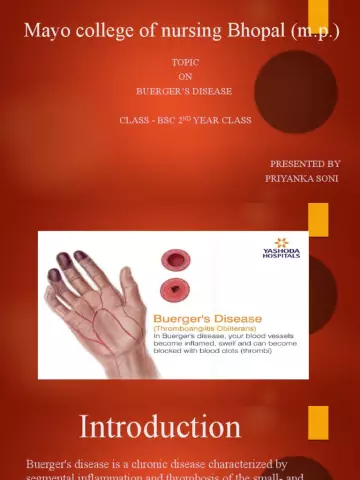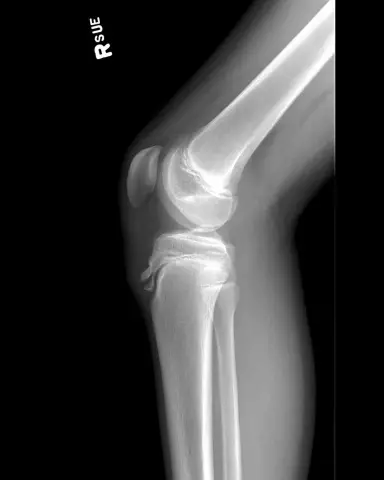- Author Rachel Wainwright wainwright@abchealthonline.com.
- Public 2023-12-15 07:39.
- Last modified 2025-11-02 20:14.
Huntington's disease

Chorea, or Huntington's disease, is rare in practice. In the European population, the prevalence of this disease is from 3 to 7 people per 100,000, and in representatives of other races - 1 per 100,000.
This hereditary brain pathology initially manifests itself in irregular involuntary movements and facial expressions, increasing anxiety, destruction of the mental health of the individual and ends with dementia, that is, dementia.
Diagnosis of Huntington's disease
If Huntington's disease is suspected, a clinical picture is analyzed and a family history of the patient is collected. In the overwhelming majority of cases, a brain scan can unambiguously confirm or deny a preliminary diagnosis. If, however, certain doubts remain, genetic testing is advisable. This type of research is extremely effective in adult patients, while in childhood, mainly other diagnostic methods are used.
Huntington's disease symptoms
It is noted that most often the symptoms of Huntington's disease appear for the first time at the age of about 30 years, although cases of both an earlier and a much later onset have been recorded. At the initial stage, they include both impulsive and uncontrolled movements, and, on the contrary, a decrease in motor activity and difficulty in movements. Then there are problems with speech, coordination of movements is impaired.
With the further development of the disease, all muscle functions gradually decrease. Chewing and swallowing on your own takes a lot of effort. Another characteristic symptom of Huntington's disease in the middle stage is uncontrolled grimacing, to which a sleep disorder is added, which develops as a result of frequent and chaotic movements of the eyeballs.
All of these functions negatively affect the mental abilities of a person, although in each specific case the degree of such influence is purely individual. First of all, abstract thinking suffers, a person's ability to evaluate his actions, adequately behave in society, and plan his own activities. Then there are problems with working memory, emotional stinginess and egocentrism, obsessions and depression, panic and even aggressive manifestations.
Patients with Huntington's disease gradually cease to recognize loved ones, their bad habits (alcoholism, love of gambling) and sexual needs are hypertrophied.

The last stage of Huntington's disease is characterized by the fact that the patient loses the ability to move independently. Death occurs from cardiovascular diseases, pneumonia, etc.
Causes of occurrence
In 1993, it was reliably established that Huntington's disease develops as a result of congenital genetic pathology. The huntingtin protein (the function of which has not been fully established to date) is normally present in the body of a healthy person in a certain amount. In people with Huntington's disease, the amount of this protein is higher than the norm.
Modern research shows that the probability of developing Huntington's disease in children born to sick parents is 50%.
Huntington's disease treatment
Modern medicine is not yet able to offer a specific treatment for Huntington's disease, although clinical tests of various methods are carried out regularly. Therapy in this category of patients is reduced to the use of symptomatic agents.
The information is generalized and provided for informational purposes only. At the first sign of illness, see your doctor. Self-medication is hazardous to health!






